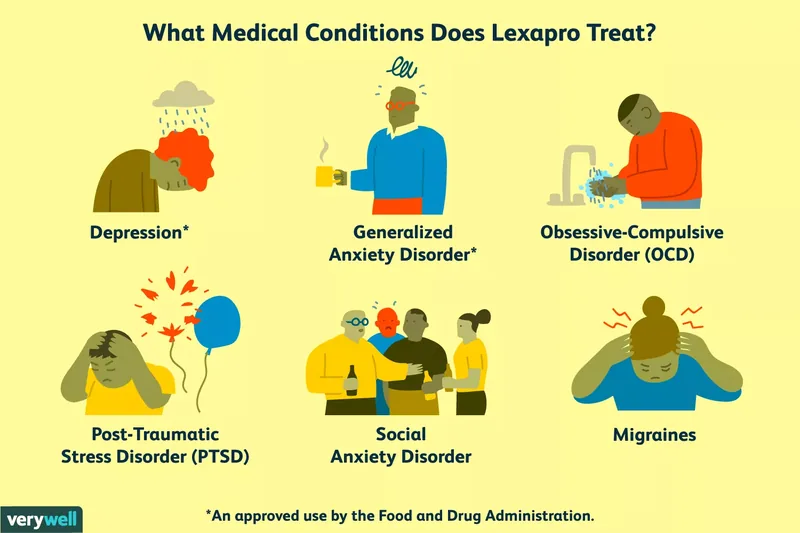The Complete Guide to the 7 Best Meditation Apps (2025)
If you want a calmer mind, deeper sleep, and better focus without adding more “to-dos” to your day, meditation apps are one of the fastest, most practical tools available. The best meditation apps in 2025 combine science-backed techniques, short guided sessions, and smart tracking so you can see real benefits in as little as 5–10 minutes.
Below is a research-based breakdown of seven leading apps—who they’re best for, how they work, and how to use them strategically, not just hopefully.
The Science of Meditation Apps
Meditation apps translate evidence-based mindfulness, breathwork, and cognitive strategies into bite-size sessions you can follow anytime. This matters because consistency—not intensity—is what drives benefits like lower stress, improved sleep, and better emotional regulation.
In multiple trials, brief app-guided mindfulness (5–15 minutes a day) has been linked to reduced stress, anxiety, and improved attention compared with no training (Harvard, 2024).
Apps help by:
- Reducing “where do I start?” friction with guided audio
- Providing structure, streaks, and reminders that support habit formation
- Offering targeted sessions for sleep, focus, anxiety, pain, and performance
When thoughtfully designed, the best meditation apps act like a portable coach—not just background noise.
Latest Research on Digital Mindfulness Tools
Recent findings (summarized from 2020–2024 peer-reviewed work and expert reports) highlight several trends:
- Short and consistent beats long and rare. Studies show 8–12 minutes of guided meditation a day can significantly reduce perceived stress and rumination.
- Active guidance outperforms unguided silence for beginners. Structured audio improves adherence and skill acquisition.
- App-based mindfulness supports sleep and emotional balance. Trials report improved sleep quality and reduced insomnia symptoms with sleep-focused meditations and breathing.
- Cognitive and emotional benefits are measurable. Research notes better attentional control, emotion regulation, and reduced emotional reactivity after several weeks of app use.
- Equity & access are improving. Free or low-cost apps extend tools once restricted to in-person programs.
Stanford researchers have reported that well-designed digital mental health tools can expand access and offer clinically meaningful improvements when grounded in established therapeutic methods.
How Meditation Apps Actually Work (Mechanisms)
The most effective apps are not random playlists; they’re built on mechanisms with strong empirical support:
- Attention training: Focusing on breath or sound strengthens networks involved in sustained attention.
- Interoceptive awareness: Noticing sensations and emotions without judgment improves emotional regulation.
- Cognitive reframing: Some scripts use CBT- and ACT-informed language to shift unhelpful thought patterns.
- Parasympathetic activation: Slow, guided breathing and body scans reduce arousal and support relaxation.
- Behavior design: Streaks, micro-habits, and cues make meditation easier to repeat, which is where results come from.
These mechanisms are why the best meditation apps can complement—not replace—formal mental health care for stress and mood support.
The 7 Best Meditation Apps of 2025
Below are carefully selected apps based on evidence-informed design, expert involvement, usability, diversity of content, and value. Choose based on your goal (stress, sleep, focus, kids, budget, or breathwork).
1. Headspace – Most Comprehensive, Everyday-Friendly
Best for: Users who want a structured, science-backed library for stress, sleep, and daily mindfulness.
Key Specs
- Platforms: iOS, Android
- Highlights: Courses for beginners, sleep casts, focus music, SOS sessions, mood tracking
Why It Stands Out
Headspace offers a highly curated path for people who want guidance without feeling rigidly programmed. Its meditations, sleep content, and mindful workouts are built with input from clinicians and researchers, focusing on stress reduction, emotional balance, and better sleep.
What It Does Well
- Clear, friendly onboarding that tailors suggestions to your goals
- Short sessions (3–10 minutes) you can stack as needed
- Helpful sleep stories and wind-downs for restless nights
- Check-ins that let you see how your stress and mood shift over time
Potential Drawbacks
- Most robust features sit behind a subscription
- Content depth can feel overwhelming without using the recommended paths
Plans & Pricing
- Monthly: $12.99
- Annual: $69.99
- Family (up to 6): $99.99/year
- Student: $9.99/year
- Free trial: 7–14 days depending on plan
Best For You If: You want one app that covers meditation, sleep, focus, and mindful living in a polished, research-aligned ecosystem.
2. Ten Percent Happier (Happier) – Best for Thoughtful Beginners & Skeptics
Best for: New meditators, busy professionals, and skeptics who want practical, no-fluff guidance.
Key Specs
- Platforms: iOS, Android
- Highlights: Beginner series, topic-based meditations, expert talks, live classes
Why It Stands Out
Built around real-world skepticism, this app emphasizes down-to-earth instruction from experienced teachers. It’s ideal if you’re curious but wary of spiritual jargon.
What It Does Well
- Clear starter tracks like "Meditation for Skeptics"
- Short sessions (3–15 minutes) ideal for workday breaks
- Ability to search by real-life themes: money, parenting, conflict, productivity
- Occasional live sessions with Q&A to refine your technique
Potential Drawbacks
- Less suited for advanced meditators wanting long silent retreats
- Higher annual cost than some competitors
Plans & Pricing
- Annual: about $99
- Free trial: 7 days
Best For You If: You’ve said, “I can’t meditate” and need guided, practical instruction that respects your schedule and skepticism.
3. Calm – Best for Deep Sleep & Wind-Down Rituals
Best for: People who struggle to switch off at night or want soothing audio throughout the day.
Key Specs
- Platforms: iOS, Android
- Highlights: Sleep stories, soundscapes, short meditations, breathing exercises
Why It Stands Out
Calm excels at sensory-rich relaxation. Its narrated stories, music, and ambient sounds are engineered to nudge the nervous system toward rest.
What It Does Well
- Immersive sleep stories designed to fade you into sleep before the ending
- Wide range of background sounds (rain, ocean, city hum, office, white noise)
- Brief meditations to reset between meetings or after stressful calls
Potential Drawbacks
- Interface can feel busy for first-time users
- Limited free content compared to Insight Timer
Plans & Pricing
- Monthly: $14.99
- Annual: $69.99
- Lifetime: $399.99
- Free trial: 7 days
Best For You If: You want an evening ritual that makes falling—and staying—asleep easier, backed by gentle guidance instead of doom-scrolling.
4. Insight Timer – Best Free Library & Global Community
Best for: Budget-conscious users and explorers who want massive variety.
Key Specs
- Platforms: iOS, Android
- Highlights: 150,000+ free meditations, courses, live events, community groups
Why It Stands Out
Insight Timer is one of the most generous free resources in the space, making quality meditation accessible regardless of income.
What It Does Well
- Extensive filters by length, theme, teacher, and benefit
- Tracks for sleep, stress, self-esteem, parenting, healing, and more
- Mood check-ins and progress charts
- Community groups (e.g., mindfulness at work, students, LGBTQIA+)
Potential Drawbacks
- The sheer volume can feel overwhelming
- Design and navigation are less refined than premium-only apps
Plans & Pricing
- Core library: Free
- Premium courses & features: about $59.99/year
Best For You If: You want maximum content and community without mandatory subscriptions—and you’re comfortable curating your own path.
5. Buddhify – Best Guided Meditations for Real-Life Moments
Best for: People who want quick, situation-specific guidance throughout the day.
Key Specs
- Platforms: iOS, Android
- Highlights: Wheel interface, 200+ guided meditations for daily contexts
Why It Stands Out
Buddhify organizes meditations by what you’re doing right now: commuting, waking up, working, feeling stuck, can’t sleep. This practical framing makes it easier to integrate into real life.
What It Does Well
- Simple wheel design: tap your current state, get a matching practice
- Short, direct, human-sounding guidance
- Great for beginners who dislike abstract instructions
Potential Drawbacks
- No desktop/web app
- Some content behind additional purchases
Plans & Pricing
- One-time download: approx. $3.99–$4.99
- Optional membership (~$30) for extra meditations and courses
Best For You If: You want targeted support in context—like a calm voice in your pocket during commutes, work breaks, or 3 a.m. spirals.
6. Breathwrk – Best for Breathing Techniques & Energy Regulation
Best for: Users who want fast physiological calm, focus, or energy via guided breathwork.
Key Specs
- Platforms: iOS, Android
- Highlights: Breathing protocols for sleep, stress, energy, pain, performance
Why It Stands Out
Breathwrk focuses on breath as a lever for your nervous system, using guided patterns aligned with emerging physiology research.
What It Does Well
- Visual and audio cues that make complex patterns easy to follow
- Themed classes (Calm, Sleep, Anxiety, Pain Relief, Energize, Stamina)
- Techniques you can memorize and use without your phone once learned
Potential Drawbacks
- Most depth is in premium tier
- Requires connectivity for best experience
Plans & Pricing
- Monthly: $12
- Annual: $69
- Limited free library plus challenges
- Discount options for students, educators, military, first responders
Best For You If: You want evidence-aligned breathwork to quickly downshift stress, sharpen focus before big meetings, or build a pre-sleep routine.
7. Smiling Mind – Best Free Option for Kids, Teens & Families
Best for: Parents, educators, and anyone seeking quality, free programs for young people.
Key Specs
- Platforms: iOS, Android
- Highlights: Age-based programs from 3+, family and school modules, adult content
Why It Stands Out
Developed by psychologists and educators, Smiling Mind is completely free and designed to help kids and adults build emotional literacy, focus, and resilience.
What It Does Well
- Short, playful meditations like visual journeys for younger kids
- Age-tailored tracks on focus, friendships, sport, exam stress
- Flexible programs adults can dip in and out of without pressure
Potential Drawbacks
- Requires a device and email for setup
- Interface is functional rather than flashy
Best For You If: You want a trusted, structured, no-cost way to introduce mindfulness at home or in the classroom.
How to Choose the Right Meditation App
Before downloading, clarify three things:
- Your primary goal
- Better sleep, less anxiety, sharper focus, spiritual growth, parenting support, or performance.
- Your realistic time budget
- 5 minutes once a day? 10 minutes twice a day? Match the app to your bandwidth.
- Your budget & learning style
- Prefer free exploration (Insight Timer, Smiling Mind) or curated programs (Headspace, Calm)?
Key features to prioritize:
- Evidence-based guidance: Informed by mindfulness, behavioral science, or clinical input
- Beginner-friendly structure: Especially if you’ve struggled to be consistent
- Targeted tracks: Sleep, anxiety, focus, relationships, or pain
- Progress tools: Streaks, check-ins, or journals that support habit formation
If you’re new, start with one app only for 14–21 days. Too many options dilute consistency.
Research-Backed Daily Routines With Apps
To translate downloads into results, use simple, repeatable frameworks.
1. 5-Minute Starter (For Beginners)
Use: Headspace, Ten Percent Happier, Buddhify, or Smiling Mind
- Morning: 3-minute guided check-in.
- Afternoon: 2-minute breathing reset before a key task.
- Evening note: One sentence on how your mood/energy felt.
2. Sleep Upgrade Protocol
Use: Calm, Insight Timer, Breathwrk
- 60–90 minutes before bed: one short breathwork or body scan.
- In bed: 1 sleep story or gentle soundscape; phone face down.
- If waking at night: repeat the same track to cue safety and sleep.
3. High-Stress Workday Plan
Use: Headspace, Insight Timer, Breathwrk
- Pre-work: 5-minute focus or intention setting.
- Midday: 3–5-minute stress-release or box-breathing.
- Post-work: 5–10-minute unwind to create a boundary between work and home.
Consistency for 3–4 weeks is where measurable benefits usually emerge.
People Also Ask: Quick Evidence-Based Answers
How do meditation apps work?
Meditation apps provide guided audio, timers, and simple exercises that teach you how to focus attention, observe thoughts, and regulate breathing. By following daily sessions—even 5–10 minutes—you build mental skills linked to reduced stress, better sleep, and more emotional control.
Are meditation apps actually effective?
When they’re grounded in established methods, yes. Research shows app-based mindfulness and breathing practices can lower perceived stress and anxiety, improve sleep quality, and enhance focus, especially when used consistently for several weeks. They’re a helpful tool, not a magic cure or a replacement for professional care when needed.
Is 10–15 minutes a day enough?
For most people, 10–15 minutes of daily guided practice is sufficient to start feeling calmer and more focused within a few weeks. Even 3–5 minutes can help if you’re consistent. Longer sessions may offer deeper benefits, but only if they are sustainable for your lifestyle.
Which meditation apps are completely free?
Smiling Mind and Insight Timer both offer robust free libraries with guided practices, especially strong for kids, schools, and general mindfulness. Several other apps provide limited free tracks so you can test the fit before committing to a subscription.
Key Takeaways
- The best meditation apps simplify proven techniques into short, doable practices.
- Choose based on your primary goal: sleep (Calm), structure (Headspace), budget (Insight Timer), kids (Smiling Mind), skepticism (Ten Percent Happier), real-life micro-moments (Buddhify), or breathwork (Breathwrk).
- Brief, daily use is more impactful than occasional long sessions.
- Look for evidence-aligned content, expert input, and designs that make consistency easy.
- Use your chosen app intentionally for 3–4 weeks before judging results; adjust based on what you actually use and enjoy.












